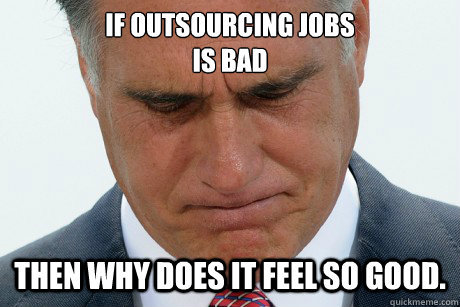Is the Coronovirus your opportunity ?
While the world is watching as much news about the spread of Coronavirus as it is taking its temperature, business discussions are revolving around the global economic slowdown, forcing the various Central Banks and other financial organizations to meet to agree on “solutions”. What if the situation is actually your opportunity?
Inspired by some questions from my contacts as a Freelancer
Dependency on Asia…
I don’t think there is any need to linger on the news channels to know/understand how much we are now dependent on Asia (China, Taiwan, Japan, …). Indeed, between processors and micro-controllers foundry, manufacturers of electronic equipment, the various low-cost supplies (who is talking about the FFP2 mask components from China?)… we have such a dependency that our economy is directly affected.
As recently as yesterday, one of my former colleagues, who was retrained in the supply of fibre-optic networks, seemed to be somewhat concerned about the situation and the risk to his business if he could no longer supply himself with network hardware. This point is collegially taken up by various service providers whose equipment comes from Asia. If the virus continues to spread as it does, many other industries will come to a standstill, also in Europe or the Americas.
Many economists are therefore pointing the finger at the notorious globalisation that would have pushed us to produce ever cheaper, and therefore ever further. To this, they oppose as a solution to relocate, closer to the places of consumption: the also famous, near-shoring. However, hadn’t we avoided it precisely for reasons of cost, (un)skills, and also for reasons of calculating risks and other opportunities by saying to ourselves “if things go wrong, we’ll find another cheap solution”. To that, I would reply that they do not learn from their own mistakes.
Dependency on non-education of the lower classes
Today, if we look at our countries, the sectors most at risk because of potential containment are the industrial sectors, with a large workforce at very low cost. The same sector that we were looking to replace with offshoring in Asia, and that we now want to upgrade (conceptually) with near-shoring.

Cutting your costs in half!
However, it is this same workforce, unskilled, often poorly educated, that is at the origin of the various populist movements that we have seen emerge in recent years. This is the same class that we continue to feed with fears and no real solutions, other than to tell them that we are protecting them and that the risk is low, or that we should not panic.
My professional deformation makes me ask myself a question: how is this answer a solution? It is relatively simple: it is not. Indeed, as with our dependency on Asia, we do not look at the original concern that motivated this or that action: we focus exclusively on factors of consequence. For us technically, this is our famous RCA.
Why is this situation with the lower classes a concern and is related to their non-education? The answer can be broken down, mainly, as follows:
- Non-education (for reasons of means, gentrification, …) reduces their ability to rise outside the pre-established framework.
- non-education will push them towards jobs with little added value and where they themselves have little added value: a robot would do just as well…
- this work forbids them any possibility of remote work.
- the low remuneration they earn prevents them from having access to better information (we will come back to this later), but also to quality solutions in the field of health care, e.g., the use of the Internet.

The sewing room of A.T. Stewart’s in 1875
What about…
I’ll grant you, it’s not all bad. Many companies already offer their employees remote working as a preventive measure. However, far too few are taking the plunge, for a variety of reasons:
- it’s too complicated (we’ll come back to this later).
- you lose the human side (really?)
- it’s because of insurance (do you think?)
- or it could simply be because of a lack of trust

Are you really working from home?
Of course, conditions and means have to be put in place, but as long as the job is suitable, nothing is unfeasible. This becomes all the more ironic when the companies refusing this teleworking are hosting companies or network operators.
For the record, this reminds me of a situation at a major French telecom operator a few years ago. I was normally working from the Paris HQ, to work on datacenter equipment, located in the suburbs. When, for practical as well as human reasons, I preferred to work from the said datacenter, I almost received a reprimand for not coming to the office and performing unofficial remote working. The datacenter belonged to the company and we had complete control over the video surveillance, so it was easy to check whether I was working on site or not.
Here, we went from one extreme, with the factory, to the other, with a specific case of DevOps. But what about all the small convenience stores, for example? Of course, it’s clearly not that obvious. Still, for administrative matters, the means exist. More and more are getting available over internet: lately I registered myself for the next elections within minutes and received my voter card in the next couple of days.
And what about our software? See the Android case with Chinese Huawei? Opensource might be your solution in most of the situation. In France, you can rely on the April association (I’m also a member there) to assist you on those matters.
And so?
Careful, now. Here I only give possible angles for reflection. These are not absolute truths and I would not claim to be a perfect economist. It is only part of my strategic vision to respond to many concerns. These concerns, I will address them afterwards in the form of small questions. To do so, I would try some parallels with subjects that I master better, because they are related to my daily professional life.
How can you not be dependent on Asia?
The real question here would be rather: how to stop being dependent? So, I’m cutting down on any preconceived notion that you have to be self-sufficient:
- It’s a heresy of our nature: mankind has always done great things because of its communities…
- the self-sufficient seeks to reduce the definition of our essential needs in order to remedy them; this leads irremediably to a problem: each of us cannot have access to the whole range of resources essential to our own sufficiency and ends up depending on a third party… or not…
So yes, the real question is how to avoid (harmful) dependency. The point is precisely in one of the reasons that invalidates self-sufficiency: everyone needs his neighbour because we still don’t have access to the same resources. The solution is therefore to multiply the sources of supply for each type of resource. In our daily work, this is the basis for redundancy:
- We had a single server with a single disk…
- we have multiplied the disks and power supplies of the PC to guarantee its operation
- we have multiplied the servers to ensure the loss of a
- we have multiplied the connectivity with the internet to ensure the loss of a link
- we have multiplied the points of presence (datacenter) to guarantee the loss of a physical site
In other areas, this redundancy is omnipresent: be it organizational, procedural, procurement related, … So why is it that in our economy and our business strategy, we persist in having only one supplier? This is the primary reason why offshoring and near-shoring alone is not the answer.
So yes, you could tell me that multiplying supply contracts reduces the mass agreement with a single supplier, and therefore costs a little more in the end. But how much is your addiction costing you? Today, because of containment and non-supply, you’re in danger of going out of business. Tomorrow, your dependency will give your supplier the power to change the situation and put the knife to your throat. Of course, you will still be able to leave, but at what price. What guarantee do you have that other vultures won’t try to kill you?
Is near-shoring a good thing ?
When we talk about near-shoring, we are talking mainly about local industrial production, not about small local shops. So yes, clearly, it does not solve everything, but it does bring some benefits:
- it provides work locally
- it reduces the product transportation chain, and the pollution associated with it
- in the case of foodstuffs, this could avoid certain phenomena where “local” products for exporters have reached astronomical prices for local populations (i.e. avocados)
However, since we are talking about industry, we are generally talking about cheap, unskilled/educated labour. Reversing or intensifying near-shoring, therefore means intensifying the use of this labour force and thus favouring its deep rooting in this “cheap and unskilled” situation, generating a nice vicious circle. Are we talking about recent popular movements all over the world, including in France?
I wonder, then, about one of the main promises of the industrial revolution, which we are continuing today, no matter what anyone says: automate what can be automated. I’m not referring to automating to increase production capacity. I am referring to automating to reduce repetitive human actions.
Whether it’s about home automation, robotic chains, Internet of Things, … so many ways and approaches precisely to rely on automation. For all that, it is not the disappearance of the human on these roles, but rather an obligation of evolution: even if we consider that an AI would be able to generate code, it remains essential that a human remains the master of the code, i.e. the definition of the action, the design of the robot, … That there be assistance, yes, but not replacement. If you want one entrepreneur who talks about it…
In the same way, for corrective maintenance, improvements, problem analysis, … All this must require a human factor intervener for the analysis. The answer to the previous problem of the situation of the lower classes is therefore to promote their education and access to information.
Remote working versus daily obligations ?
When working remotely or, even worse, in forced confinement, the population is exposed to isolation and supply complications. Moreover, recent fears in certain regions of France have motivated local populations to obtain mass supplies of non-perishable foodstuffs, thus producing a small shortage effect that could be managed quite differently.
Massive remote-working at the level of a community (i.e. far beyond a company) has the effect of amplifying any sense of isolation, but also the fear that the media can convey.
Here again, access to clear and accurate information helps to compensate for the latter. On the other hand, with regard to isolation, it is necessary to distinguish between different cases.
In the case of isolation from local shops, online shops can set an example. Of course, this may be easier for the big players (supermarket chains, major e-commerce sites such as Amazon, …) but the small business can have so many possibilities:
- take advantage of marketplaces: after all, a good part of Amazon’s revenue on its site comes from its intermediary model; other sites also exist, more or less specialized (i.e. Etsy for handicrafts)
- use turnkey SaaS solutions: Shopify, Wix, …
- rely on local delivery services with food as a good example: UberEats, JustEat, Frichti, …
And here I’m only mentioning a few 2.0 solutions. What about all the old-fashioned solutions that continue to exist as:
- mobile libraries
- delivery of bread
- pizza trucks
And for your supermarket habits, solutions already exist:
- online supermarket with drive-in
- online supermarket with delivery
Then, what about the doctor and any medical care? Online consultations are already a reality in France, officially supported by social security. Of course, this only allows an initial filtering for benign concerns, but it can make medical practices and emergencies so much lighter, while at the same time compensating for some medical deserts. Likewise with meds e-commerce websites.
Yet another case would be about the upbringing of our dear little blonde heads in all this? The subject is indeed a little more peculiar. Where MOOCs and other online course solutions may be suitable for the vast majority, it’s not so easy for young children.
Mainly because some learning techniques, such as Montessori, show that it is through the effect of community mixed with mimicry and the desire to learn, that our children learn best. The other important point of these teachings is that this group of children must be restricted, contrary to the unwanted trend of “normal” education which wants to have 35 children per class.
The application of these methods, in small groups, thus makes it possible to return to a very local aspect, even in villages with low density. This point is also related to the previous topic on the middle classes. It is one of the possible ways of providing access to better education. Before going on to specializations that can be done, among others, through the MOOCs.
Finally, what about the human side, then? I’d say you have free will to choose the best way to maintain your relationships. I would cite for example a solution to keep in touch with your elderly relatives: Sunday.
Your opportunity ?
How is this an opportunity for you? Quite simply because it is up to everyone to step in and do what they can to make it happen. There is a range of solutions for every question you may have. This can potentially improve your living environment and even the famous work-life balance.
Also, containment in China, for example, certainly has an impact on their economy, and by rebound, on ours, but also and above all on pollution and therefore ecology.

Satellite imagery shows a drop in air pollution over central and eastern China following a government imposed coronavirus quarantine. (NASA Earth Observatory/Joshua Stevens)
Fighting against containment through old and new means; promoting teleworking, while trusting in the professionalism of employees; improving education through new methods; … are all answers for a brighter future.
What more do you think you could do today to turn this situation into an opportunity? Feel free to contact me to discuss it. I surely have some solutions to submit to you for your connected issues.














